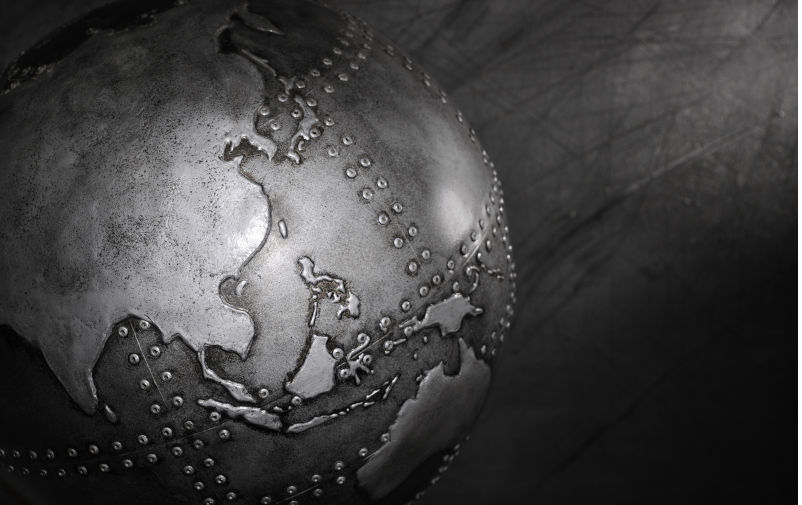Blaming China won’t keep the lights on – or pay the power bill
September 19, 2025
Sky News is back on the beat with a familiar headline: “The $20,000-per-person climate tax: Cost of Australia’s green agenda to become astonishingly clear this week when new emissions targets are set.”
You’ve seen this cast before — the stoic Aussie battler, the reckless Greenie, and somewhere in the background, a shadowy figure from Beijing hiding behind a rooftop solar panel.
Different week, same story. And the ending never changes: blame China.
This week’s episode claims Labor’s 2035 emissions target will torch the power grid, drain wallets and flatten country towns under a stampede of wind farms.
Somewhere between the imaginary $500 billion price tag and the usual cutaways of transmission towers, the actual policy disappears – and the fearmongering takes over.
Then comes the main character reveal: China. Beijing, we’re told, is still burning coal and laughing at our naivety.
What doesn’t make the cut is less dramatic but far more useful – that China is also building clean energy on a scale no one else can match, because running a giant economy takes a lot of power. That’s not propaganda. That’s basic grid security.
Yes, China’s still building coal. But it’s also shutting down older plants, rolling out record levels of wind and solar and exporting the hardware that keeps much of our own transition going.
Now about that price tag. That scary headline figure isn’t a bill sitting on your kitchen table. It’s a 10-year investment – new wires, better firming, future industries.
This kind of infrastructure isn’t just about climate targets – it’s about building things that last. It creates jobs and, over time, it makes the whole system cheaper to run. Right now, we burn through tens of billions every year importing oil.
Shifting more of the economy to electricity means keeping more of that money here. That’s not some ideological crusade – it’s just smart economics.
None of this means we skip the hard questions. Locals should have a say in where infrastructure goes.
Reliability doesn’t happen by hope – it needs engineering. Bad procurement can sink a good plan. These are real issues, with real solutions. Let’s name them clearly: planning, workforce, siting, market design. Not everything has to be a culture war.
This latest round of outrage is powered by the usual suspects, including a think-tank that apparently hasn’t updated its spreadsheet since Scott Morrison was still claiming EVs couldn’t tow a boat – while Fortescue and BHP are developing electric haul trucks built to carry hundreds of tonnes. These companies aren’t signing up to a communist plot. They’re just looking at the numbers and choosing lower running costs.
And the “the grid will collapse” argument? It deserves more than panic.
Grids fail because of poor maintenance, underinvestment and lazy planning – not because someone proposed a solar farm. Price capacity properly. Build firming. Replace ageing coal plants before they fall over.
Pretending the 1990s fleet will last forever isn’t a plan.
It’s denial.
Also: spare a thought for the people who live on the land, not the ones yelling on panel shows. The farmers. The droughts are longer, the heatwaves nastier and insurers are already adjusting their models. Electrification and storage aren’t magic fixes, but they’re buffers – economic ones. Call that what it is: resilience.
What’s at stake here isn’t just a press conference target. It’s the future shape of the economy. Do we want to keep digging and shipping, or do we climb the value chain — processing, components, software — and actually own more of the upside? A lot of engineers and business leaders already know the answer. The ones shouting to take us back to 2005? Mostly paid to keep us angry, not employed.
And here’s the bit Sky never mentions: Australia isn’t starting from scratch. We’re rich in wind, sun and space. We used to lead the world in solar research. In fact, some of the scientists who helped build China’s solar empire trained in Australian labs. The tragedy isn’t lack of opportunity – it’s that we gave it away. We don’t have to do that again.
So yes, scrutinise the costs. Make the tenders transparent. Design the maps with communities, not over them. But enough with the pantomime.
If your litmus test for an energy project is “no Chinese parts, no public investment, no change to my view”, the answer will always be the same: no future.
Call it what it is: not a climate tax. Not a communist plot. An insurance policy. An upgrade. A way forward.
Sell fear if you want – the rest of the world’s already building.
We can either get on with the work, or keep watching the same old rerun: China’s the villain. Coal’s the hero. Nothing ever changes.
And News Corp? They still won’t be paying your power bill when the lights go out.
The views expressed in this article may or may not reflect those of Pearls and Irritations.

